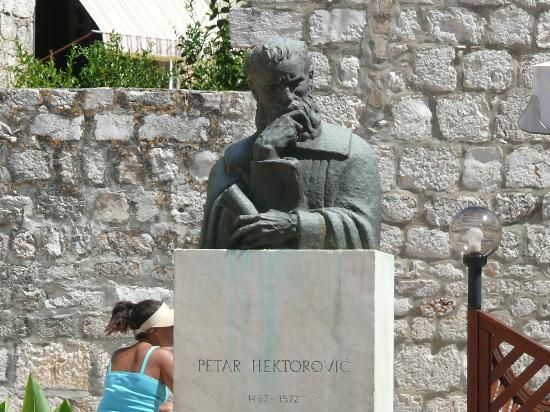What is the role of the public notary in purchasing a property?
The Role of the Public Notary in Croatia
The Public Notary (javni bilježnik in Croatian) plays a crucial role in property transactions and legal processes in Croatia. Many official actions cannot be completed without their involvement. On the island of Hvar, the only public notary operates in Stari Grad. Their office is located in a corner of the Hektorović Villa, which also houses a well-known museum.
The office features a reception area where most transactions take place. A larger conference room accommodates bigger groups. The atmosphere is formal, and while the staff is professional, friendly smiles are not guaranteed! Be aware that the waiting area is outside under an arch. In summer, it provides a cool retreat, but in winter, it can be bitterly cold. Waiting times of 45 minutes or more are common.
What Does a Public Notary Do?
A Public Notary ensures that legal documents meet the necessary legal standards. To make a contract or a power of attorney fully binding, a notary must witness and notarise the signature. While notarisation is not always required for buyers, it is generally advisable. Courts and official bodies in Croatia do not accept signatures witnessed by anyone other than a public notary. Simple photocopies are also invalid.
Sales contracts typically require two original copies. The notary can produce additional stamped and sealed copies. Buyers should obtain four copies, as utility companies require them to transfer accounts.
Documents in foreign languages must be translated by an official interpreter (sudski tumač). Hvar lacks an English interpreter, so translations must be done in Split or elsewhere. The correct official stamp is essential. At Balustrade Estates, bilingual sales contracts appear in a two-column format. We recommend a court translator from Zagreb who provides translations in English, French, Italian, and German, usually within 48 hours.
How Does Notarisation Work?
To complete notarisation, you must provide proof of identity. Croatians use an identity card or passport, along with their personal identification number (OIB). Foreigners must present a passport. Photocopies are not accepted.
The notary records your details in a ledger before overseeing the transaction. For signature witnessing, the notary observes you signing, then adds verification to the document or a separate stamped sheet. This sheet is attached to the original document using a multicoloured twisted cord, knotted and sealed at the back. A final stamp prevents tampering. The notary retains a copy of the notarised document.
Understanding the role of a Public Notary helps ensure a smooth property transaction in Croatia. If you need further assistance, Balustrade Estates is here to guide you through the process.
Public Notary Contact Details
Public Notary Office, Kod Svetog Roka, 21460 Stari Grad
Telephone: + 385 (0)21 765 547
Working hours for receiving clients:
Monday and Wednesday 8.00 – 14.00
Tuesday and Thursday 8.00 – 16.00
Friday: 8.00 – 12.00
(Closed on Bank Holidays)



